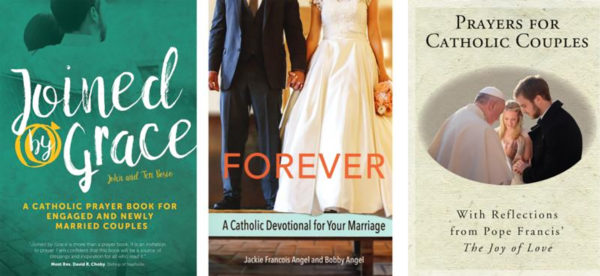By Mark Judge Catholic News Service
“Francis: The People’s Pope” (Seven Stories Press), a graphic biography by journalist and cartoonist Ted Rall, is, in its way, a celebration of the current successor of St. Peter.
Written from a far-left political perspective, the book calls Pope Francis a refreshing new leader but argues that he isn’t liberal enough.
While entertainingly drawn and sharply written, ultimately the book is too tendentious in its political bias.

This is an image from “Francis: The People’s Pope,” a graphic biography by journalist and cartoonist Ted Rall. Written from a far-left political perspective, the book calls Pope Francis a refreshing new leader, but argues he isn’t liberal enough. (CNS photo/Seven Stories Press)
Rall, an atheist and Pulitzer Prize finalist, advocates for same-sex marriage, contraception, married priests, female priests and abortion. Acknowledging the unlikelihood of the Catholic Church ever changing its stance on these core issues – the pontiff himself has no power to revise dogma, though the celibacy of the clergy is a matter of practice, not technically doctrine – Rall instead celebrates Francis as the harbinger of a “new tone” in the church.
Throughout “The People’s Pope,” Rall lays out some truths, but often in an incomplete or misleading manner. He zeros in, for instance, on Pope Francis’ famous 2013 comments about judgment and homosexuality. Speaking to reporters on the return flight from a trip to Brazil, the pope said, “If a person is gay and seeks out the Lord and has goodwill, who am I to judge?”
Rall omits the pope’s subsequent clarification: “I was paraphrasing by heart the Catechism of the Catholic Church where it says that these people should be treated with delicacy and not be marginalized.
“I am glad that we are talking about ‘homosexual people’ because before all else comes the individual person, in his wholeness and dignity. And people should not be defined only by their sexual tendencies: Let us not forget that God loves all his creatures and we are destined to receive his infinite love.”
The pontiff added: “I prefer that homosexuals come to confession, that they stay close to the Lord and that we pray all together. You can advise them to pray, show goodwill, show them the way and accompany them along it.”
A colorfully illustrated volume, “The People’s Pope” is separated into brief sections covering a wide variety of topics. In the passage on church history, Rall lashes the church for jailing Galileo and unfairly tars it with not doing enough to resist the Nazis.
Rall also deals with the Second Vatican Council, the life of Jorge Mario Bergoglio in Argentina before he became pope, the sexual abuse scandal that hit the church beginning in 2002, South American liberation theology, the Catholic response to the war on terror and the pontificates of St. John Paul II and Pope Benedict XVI.
The frank treatment of war and sexuality, including pedophilia – as well as the off-kilter way in which the church is repeatedly portrayed – make this unsuitable for younger readers. Nor can it be endorsed for grownups lacking in knowledge of the faith.
Rall offers a straightforward account of Francis’ youthful life, then turns to the “dirty war” that tore Argentina apart in the 1970s and 1980s. A middle-age Jesuit at the time, then-Father Bergoglio has been accused of both aiding the right-wing “Iron Guard” in power and the leftist guerrillas in opposition. “His legacy is murky” here, concludes Rall.
In another section Rall criticizes St. John Paul as “the anti-Francis.” John Paul, he argues, was an “establishmentarian” standing in opposition to Francis, the champion of the poor.
Yet it’s difficult to argue that the Polish pope, who grew up in a war-torn country destroyed by both fascists and communists, didn’t have sympathy for – or contact with – the poor. Faced with this, even Rall admits that John Paul “was deeply concerned about the oppressed.”
Furthermore, while Rall touts Pope Francis’ “refreshingly modern views on sex,” he doesn’t note that, far from being ashamed of human sexuality, Karol Wojtyla initiated the theology of the body – and the dynamic of human love was central to his whole theological vision.
Like Rall, both Popes Francis and John Paul opposed the Iraq War.
Rall has a primitive drawing style, but he gives his characters personality and humor. He writes in a simple, declarative style that presents arguments with selective research but does avoid hectoring.
To marshal his case, Rall quotes church historians and theologians who agree with him. In the softball section on liberation theology, the Marxist-tinged strain of Catholicism that excited the Christian left in the 1970s and1980s, Rall quotes Fidel Castro to the effect that “he who betrays the poor betrays Christ.”
After more than 200 pages of graphics, cartoons and reproduced newspaper headlines, Rall comes to his conclusion: “No doubt about it: Francis is a breath of fresh air to an institution that badly needs it. But he isn’t a wild-eyed liberator.”
Of course, form the subjective view of a political activist, the same could be said about any number of church leaders from St. John XXIII, who convened Vatican II, to St. John Paul, who helped destroy the prison of European Communism.
The graphic biography contains a distorted view of Catholicism as well as mature themes and images. The Catholic News Service classification is L – limited adult audience, material whose problematic content many adults would find troubling. Not otherwise rated.
(Judge reviews video games and comic books for Catholic News Service.)
By Kathleen Finley Catholic News Service
“Joined by Grace: A Catholic Prayer Book for Engaged and Newly Married Couples” by John and Teri Bosio. Ave Maria Press (Notre Dame, Indiana, 2017). 136 pp., $9.95.
“Forever: A Catholic Devotional for Your Marriage” by Jackie Francois Angel and Bobby Angel. Pauline Books and Media (Boston, 2017). 163 pp., $15.95.
“Prayers for Catholic Couples: With Reflections from Pope Francis’ ‘The Joy of Love,'” compiled and edited by Susan Heuver. Word Among Us Press (Frederick, Maryland, 2017). 167 pp., $11.95.
Whether they know it or not, married couples today need lots of prayer to live their vocation well. They always have, but perhaps today they may need it more than ever. Three recently published books approach this need in rather different ways.
Of the three, the most like a traditional Catholic prayer book is “Joined by Grace,” in which John and Teri Bosio have compiled a great many traditional Catholic prayers, from prayers from the Mass to litanies to praying with some of the saints to other devotions, such as the rosary and the stations of the cross, each with a brief explanation.

For couples already connected well to a parish and mainly comfortable with formal prayers, this may be quite helpful; however, it’s unfortunate that these prayers and devotions aren’t linked more specifically with the joys and challenges that marriage presents.
The second book, “Forever” by Jackie Francois Angel and Bobby Angel, is designed as a four-week exploration of the theology of the body from St. John Paul II, a theology that some couples have found more helpful than others. It tends to be rather didactic and not as devotional as a prayer book often would be, perhaps suitable for a couple to read aloud to one another daily, but what the Angels have done here requires a considerable time commitment on the part of a couple.
Last, but not least, is “Prayers for Catholic Couples,” which includes brief excerpts from Pope Francis’ 2016 apostolic exhortation “The Joy of Love” (“Amoris Laetitia”). Susan Heuver has done a fine service for couples in making insights from this compassionate document easily available to couples for their reflection.
In his introduction to his pastoral letter, Pope Francis explained, “It is my hope that, in reading this text, all will feel called to love and cherish family life, for ‘families are not a problem; they are first and foremost an opportunity.'” That tone indeed comes through in this little book.
Pope Francis talks about the lack of perfection in families: “No family drops down from heaven perfectly formed; families need constantly to grow and mature in their ability to love.”
He observes about marital fidelity that “just as a good wine begins to breathe with time, so too the daily experience of fidelity gives married life richness and ‘body.’ Fidelity has to do with patience and expectation. Its joys and sacrifices bear fruit as the years go by and the couple rejoices to see their children’s children. The love present from the beginning becomes more conscious, settled and mature as the couple discovers each other anew day after day, year after year.”
He even discusses parenting: “It is also essential to help children and adolescents to realize that misbehavior has consequences. They need to be encouraged to put themselves in other people’s shoes and to acknowledge the hurt they have caused. … It is important to train children firmly to ask forgiveness and to repair the harm done to others.”
After each brief excerpt from “The Joy of Love” Heuver includes a reflection question or two and a short prayer for the couple to share. These offer an opportunity for a couple to reflect on their lives on the run, which is often the only opportunity they may have.
All three of these books of prayers could be helpful for couples trying to live a faith-filled, sacramental marriage in a world that seems to value change and superficiality instead.
(Finley is the author of several books on practical spirituality, including “Prayers for the Newly Married” and “The Liturgy of Motherhood: Moments of Grace,” and previously taught in the religious studies department at Gonzaga University.)
